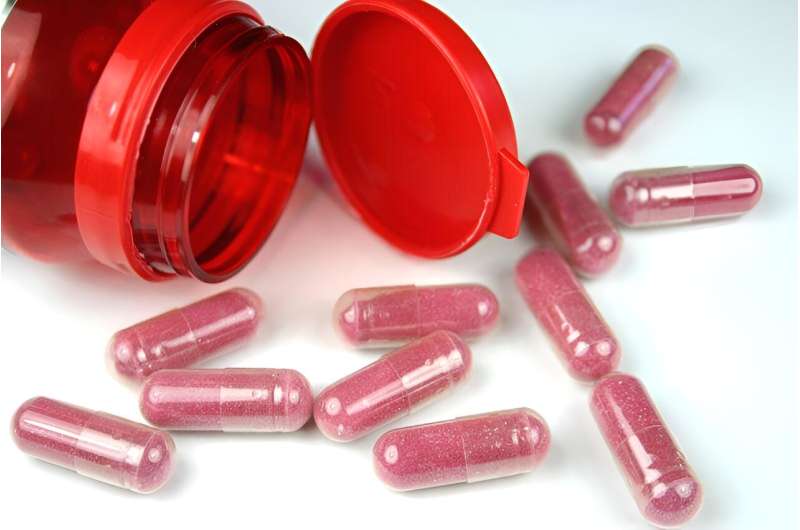This article has been reviewed according to Science X's editorial process and policies. Editors have highlighted the following attributes while ensuring the content's credibility:
fact-checked
peer-reviewed publication
reputable news agency
proofread
Adjunctive Tongxinluo therapy aids ST-segment elevation myocardial infarction outcomes: Study

In patients with ST-segment elevation myocardial infarction (STEMI), the traditional Chinese medicine Tongxinluo, as an adjunctive therapy to guideline-directed treatment, is associated with significantly improved clinical outcomes, according to a study published in the Oct. 24/31 issue of the Journal of the American Medical Association.
Yuejin Yang, M.D., Ph.D., from Peking Union Medical College in Beijing, and colleagues investigated whether adjunctive Tongxinluo therapy could improve clinical outcomes in patients with STEMI.
The analysis included 3,797 patients who were randomly assigned (1:1) to receive either Tongxinluo or placebo orally for 12 months (a loading dose of 2.08 g after randomization, followed by the maintenance dose of 1.04 g, three times a day). In the primary analysis, 3,777 patients were included.
The researchers found that 30-day major adverse cardiac and cerebrovascular events (MACCEs) occurred in 3.4% of patients in the Tongxinluo group versus 5.2% in the control group (relative risk [RR], 0.64). The Tongxinluo group also had a lower risk for individual components of 30-day MACCEs, including cardiac death (3.0 versus 4.2%; RR, 0.70) compared with the placebo group.
The Tongxinluo group continued to have lower rates of MACCEs at one year (5.3 versus 8.3%; hazard ratio [HR], 0.64) and cardiac death (4.5 versus 6.1%; HR, 0.73). For secondary end points, including 30-day stroke, major bleeding at 30 days and one year, one-year all-cause mortality, and in-stent thrombosis (<24 hours; one to 30 days; and one to 12 months), there were no significant differences.
The Tongxinluo group experienced more adverse drug reactions than the placebo group (2.1 versus 1.1%), which was mainly driven by gastrointestinal symptoms.
"Unlike most traditional Chinese medicine research with relatively low level of evidence, the current study design incorporated all key elements of randomized clinical trials," the authors write. "Therefore, the current study may serve as a model for future clinical trials to evaluate the safety and efficacy of traditional Chinese medicine."
More information: Yuejin Yang et al, Traditional Chinese Medicine Compound (Tongxinluo) and Clinical Outcomes of Patients With Acute Myocardial Infarction, JAMA (2023). DOI: 10.1001/jama.2023.19524
Richard G. Bach, Traditional Chinese Medicine Meets Evidence-Based Medicine in the Acutely Infarcted Heart, JAMA (2023). DOI: 10.1001/jama.2023.20838
Copyright © 2023 HealthDay. All rights reserved.





















